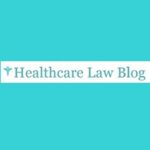When it Comes to Diagnostic Testing, Be Careful of the Company You Keep
The U.S. Attorney’s Office for the District of New Jersey reorganized its health care practice in 2010 and created a stand-alone Health Care and Government Fraud Unit to handle both criminal and civil investigations and prosecutions of health care fraud offenses. Since then, that office has recovered more than $1.36 billion in health care and government fraud settlements, judgments, fines, restitution and forfeiture under the False Claims Act, the Food, Drug and Cosmetic Act, and other statutes. Many of its enforcement actions have involved diagnostic testing companies and their arrangements with physicians.
In two recent cases, the U.S. Attorney settled with cardiac monitoring companies. One company agreed to pay more than $13.4 million for steering physician clients to order higher levels of service than medically necessary. In another case, the cardiac monitoring company had entered into “fee-for-service” or “direct-bill” agreements with certain hospital and physician clinic customers that allowed the customers to bill Medicare and retain the reimbursement, which exceeded the fee that the company charged them. These agreements resulted in a net profit to the customers who submitted claims to Medicare in accordance with the agreements, primarily for services that the company—and not the customers—performed. That company paid more than $1.35 million to settle the allegation that the remuneration under these agreements was to induce referrals from their customers for non-Medicare business.
In cases like these, there is always another shoe that drops, and that would be the physician’s shoe. This was the case with the Biodiagnostic Laboratory Services (BLS) matter which involved physicians accepting bribes and kickbacks in exchange for test referrals to BLS. In June 2016, BLS, which is no longer operational, pleaded guilty and was required to forfeit all of its assets. Since then, the investigation has resulted in 45 guilty pleas – 31 of them from doctors – in connection with the bribery scheme. It is believed to be the largest number of medical professionals ever prosecuted in a bribery case. The investigation has to date recovered more than $12 million through forfeiture.
Similarly, in Texas, One Step Diagnostic agreed to pay $1.2 million in 2014, to settle allegations that it violated the Stark Statute and the False Claims Act by entering into sham consulting and medical director agreements with physicians who referred patients to One Step Diagnostic Centers. Thereafter, in 2016, at least four physicians entered into settlements to resolve anti-kickback allegations surrounding the same medical director agreements.
The message here is that diagnostic testing companies are always on the government’s radar screen, and that surveillance eventually includes the physicians who do business with them. While diagnostic testing companies can bring valuable services to a physician practice, even legitimate arrangements can place the physician in jeopardy if the company, the services, or the agreement don’t meet applicable rules. The physician must assess whether the company it plans to partner with is operating in accordance with laws regarding licensure, personnel, referrals and billing. In New Jersey, rules governing diagnostic testing services performed in a physician’s office impose additional requirements on the practice. Physicians should consult with experienced legal counsel to vet any diagnostic testing arrangement under both federal and state law before signing a services or billing agreement or receiving any compensation from a consulting or medical director arrangement.
Questions regarding this article may be sent to Publications@Capehart.com.





With all of these government agencies supposedly watching out for the consumer you’d think when someone calls the state about infractions that he’s aware of, they’d respond. I own three diagnostic imaging facilities in NJ and I’ve called and emailed the state about consistent violations from competitors and been ignored completely.